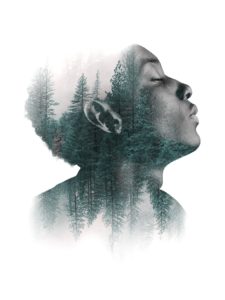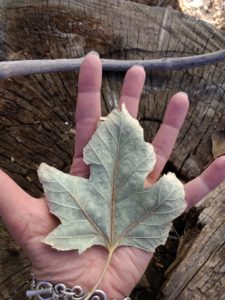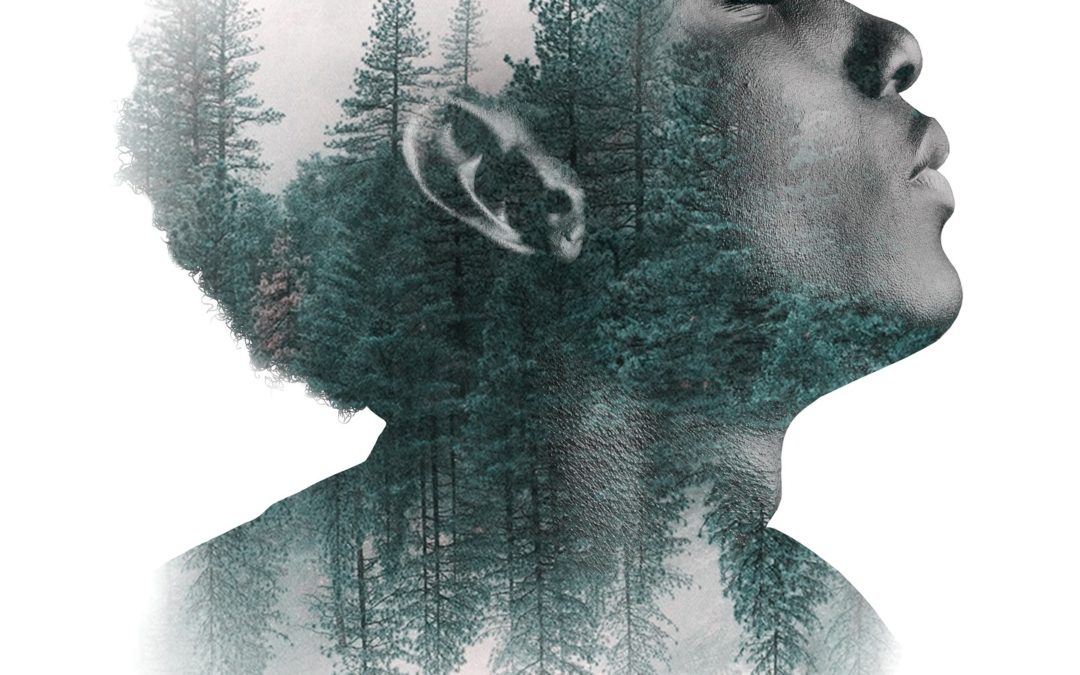By Deb Matlock
Rewilding. This term is showing up in all manner of places these days, from discussions on wildlife and land conservation to sales pages for lifestyle coaching programs. It is a bit of a new trend it seems. Although, personally, I feel like my first encounter with the idea of rewilding came nearly 20 years ago when reading Women Who Run with the Wolves by Clarissa Pinkola Estes.  It was in the pages of this amazing book that I began my truly honest journey to understanding an authentic sense of wildness within myself. Ideas such as intuition, creativity, voice, wounds, and psyche were melded with the concepts of nature connection and honoring myself as an ecological being. This book changed my life and my understanding of who I am in the world. It is well worth checking out!
It was in the pages of this amazing book that I began my truly honest journey to understanding an authentic sense of wildness within myself. Ideas such as intuition, creativity, voice, wounds, and psyche were melded with the concepts of nature connection and honoring myself as an ecological being. This book changed my life and my understanding of who I am in the world. It is well worth checking out!
“So the word wild here is not used in its modern pejorative sense, meaning out of control, but in its original sense, which means to live a natural life, one in which the criatura, creature, has innate integrity and healthy boundaries.”
Clarissa Pinkola Estes in Women Who Run with the Wolves
 According to the Cambridge online dictionary, rewilding is defined as “the process of protecting an environment and returning it to its natural state, for example by bringing back wild animals that used to live there.” Indeed, the conservation movement is credited with bring the term rewilding to the forefront. However, our souls, hearts, minds, and spirits might also do well with to be “protected” and “returned to their natural state.” Perhaps this is why the word rewilding has taken on a life of its own, well beyond wildlife and wild land conservation.
According to the Cambridge online dictionary, rewilding is defined as “the process of protecting an environment and returning it to its natural state, for example by bringing back wild animals that used to live there.” Indeed, the conservation movement is credited with bring the term rewilding to the forefront. However, our souls, hearts, minds, and spirits might also do well with to be “protected” and “returned to their natural state.” Perhaps this is why the word rewilding has taken on a life of its own, well beyond wildlife and wild land conservation.
Perhaps strangely, I have often been a bit bothered by the idea of rewilding ourselves as it seems to indicate that we are no longer wild beings, living wildlives, on a deeply wild earth. As those expressions of wildness are not optional, cannot be taken away from us, it seems that remembering our wild natures is really what is key and not so much rewilding what is already wild…our very essences and expressions as beings on this earth. The classic understanding of rewilding in the conservation realm speaks of restoring landscapes, planting plants and trees, creating wetlands, etc. as well as reintroducing indigenous species back into those landscapes. Rewilding in human terms seems to mean something different as we are not adding species back into ourselves, but rather allowing our awareness to include the needs, desires, and interests of our wild souls. Do we need more time with our bare feet on the ground? Do we long for a few minutes a day to simply gaze at the clouds. Do we crave a schedule that allows the night owl in us to flourish? Do we need the opportunity to honor our deeply relational responses to the changing seasons and how they impact us? What does connecting to our wild selves mean? All good questions to ponder…
When I think of rewilding personally, I think of reminding myself that I have natural rhythms which, when honored, can help me live my life to the fullest. I think of balancing my time in front of the computer with time outdoors, playing with my animals, and connecting with the life around me. I think of eating food my body craves and not just what is convenient. Rewilding to me means remembering that first, I am an ecological being living a deeply spiritual journey on this wild and amazing Earth. What an honor. What a privilege. What a mystery. My job is to live this path as best I can, doing as much good as possible, for the time I am allowed to be here. Wildness indeed. We are already wild. We only need to remember.
Deb Matlock grew up in the mountains of Colorado and is deeply committed to nurturing the connection between people, animals, earth, and spirit. She has spent twenty-five years working as a professional environmental and humane educator and naturalist. Additionally, Deb offers shamanic-style spiritual guidance, animal communication, nature connection workshops, and retreats through her business, Wild Rhythms. She is passionate about helping people find connection and deep spiritual meaning in their lives and in the places where they live. Deb holds a Master of Arts in Environmental Education from Prescott College and is pursuing her doctoral degree in environmental studies at Antioch University New England.
Interested in exploring sacred connection to earth, animals, and spirit? Join the Wild Rhythms Facebook group.

